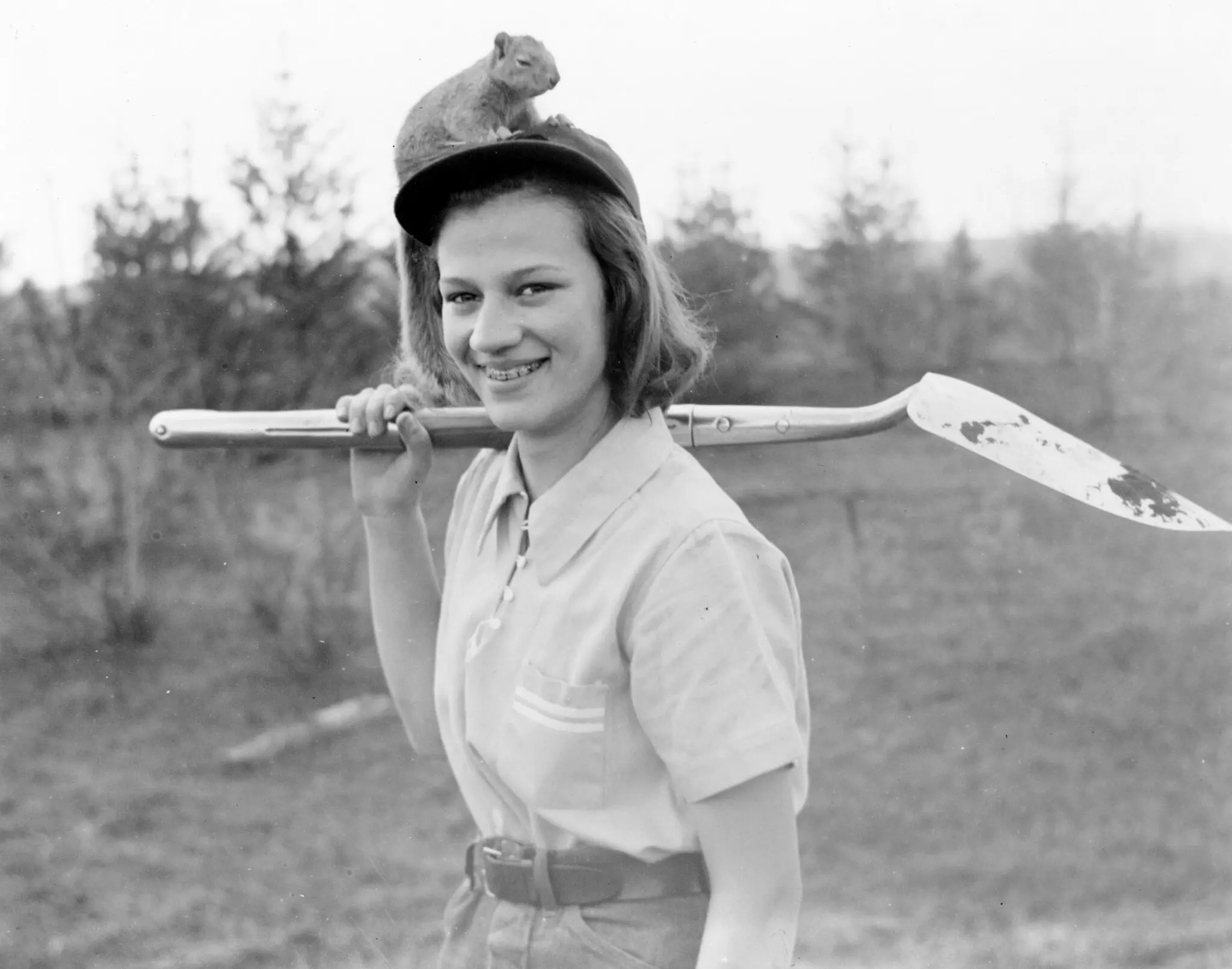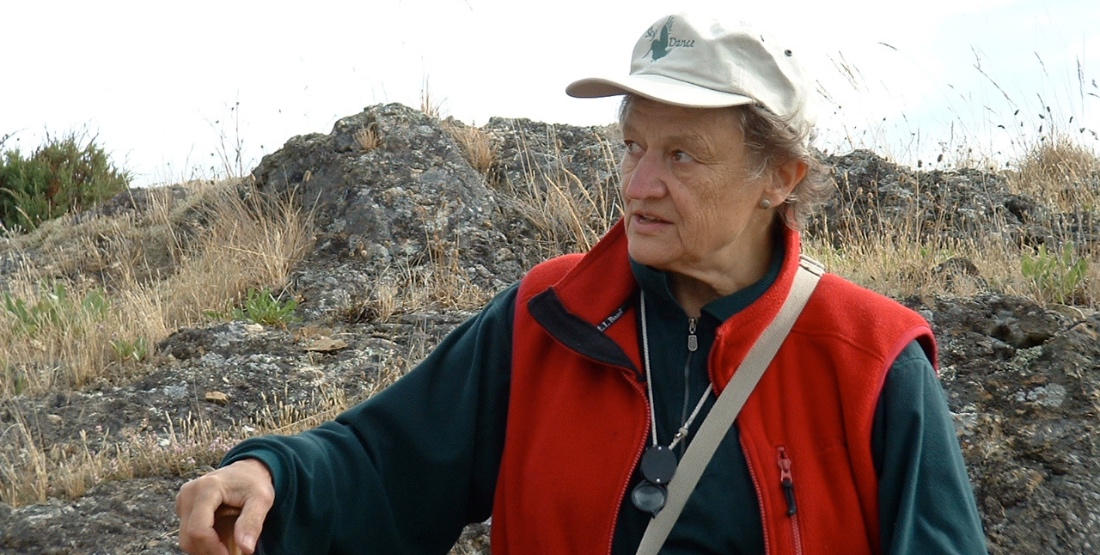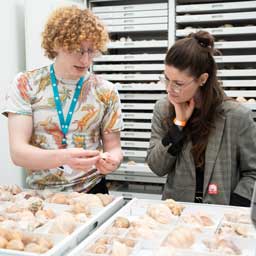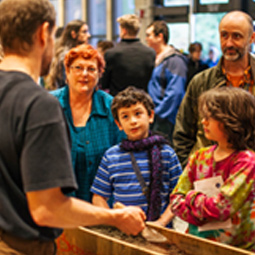Dr. Leopold’s research has resulted in many influential publications that provide crucial insights for understanding global environmental change. For example, her work on the pollen record of the Eniwetok and Bikini atolls (23-25 million years old) provided the first concrete evidence for Darwin’s theory that these atolls (ring-shaped reefs, islands, or chains of islands) formed on top of subsiding volcanoes (Leopold 1969, US Govt. Print. Off.).
Dr. Leopold inherited a keen sense of the value of preserving the nature around us from her father and sought to integrate the knowledge that she gained through her deep-time studies in her own conservation efforts. As she herself put it, “How can man keep a perspective on his direction and life’s path if he loses track of the routes that life has followed before him?”
A prominent example of Dr. Leopold’s efforts is the fight to preserve one of the world’s most important fossil sites: the Florissant Fossil Beds, located high in the Colorado Rockies. The site is famous for its exceptionally well-preserved, 34-million-year-old fossils of fish, insects, clams, plant leaves, and pollen. The area containing them had been privately owned for many years but was threatened by real estate development in the 1960s. Realizing what was at risk— not only the remnants of our planet’s history but also “spiritual, paleontological, biological, recreational and aesthetic values”—Dr. Leopold co-founded The Defenders of Florissant. The group sued to bring the builders to court to block development, leading to the creation of the Florissant Fossil Beds National Monument in 1969.
Dr. Leopold’s ascendancy to the top of her field at a time when women in STEM were few and far between is an inspiration for women and girls in science everywhere. Initially working as a research botanist at the United States Geological Survey, and an adjoint professor at the University of Colorado, she arrived at the University of Washington in 1976 to become the director of the Quaternary Science Center and a professor in the Botany department and the School of Forest Resources. She was elected to the National Academy of Sciences in 1974, and the American Academy of Arts and Sciences in 1992. In 2010, she received the prestigious Cosmos Prize—considered the Nobel Prize of conservation. Most recently, in 2013, she was awarded the Palaeontological Society Medal, the most prestigious award in the world of paleontology.
For us here at the Burke Museum, the memories of Dr. Leopold and her legacy will remain vivid for years to come. She donated a vast collection of pollen slides, seeds, and fossil plants that now form a cornerstone of our growing and important paleobotanical collections. With her brother, Luna, she created the endowed professorship and curatorship in paleobotany at the Burke Museum (a position currently held by Dr. Caroline Strömberg) to ensure that paleobotany would thrive in perpetuity at UW. While Dr. Leopold was with us, she taught students of all ages how to conduct pollen analysis, mentored women and girls in science, and engaged with the paleontological community through teaching, research, and frequent wine and cheese soirees at her house. She was enthusiastic, infinitely knowledgeable, sharp as a tack. She spoke her mind and was enormously generous and kind, with a wonderful sense of humor. Though her extraordinary legacy lives on, the UW and the Burke Museum will not be the same without her.




